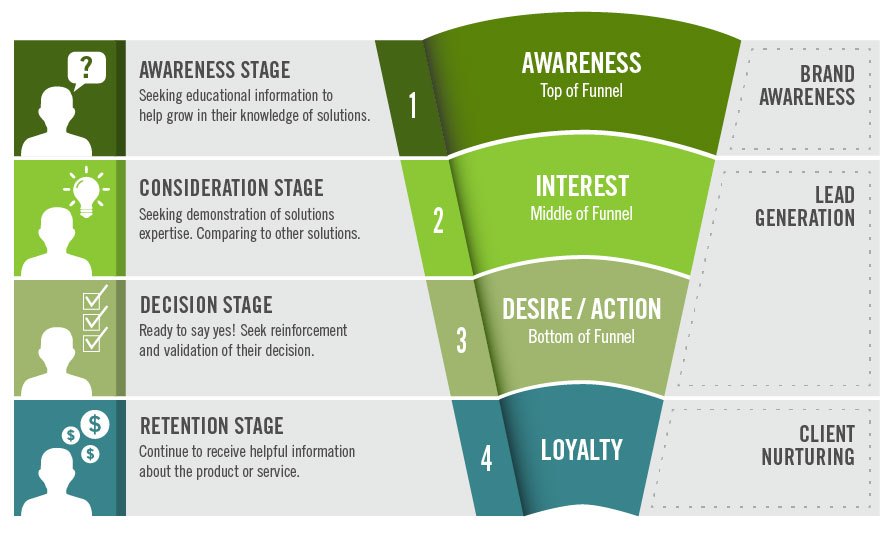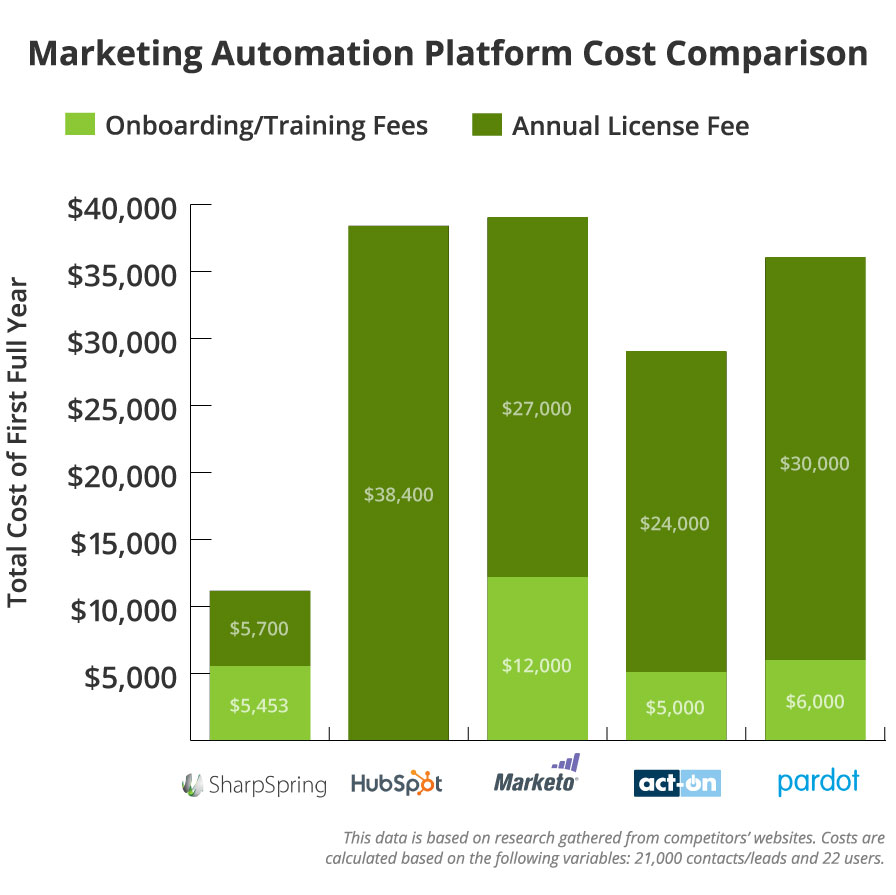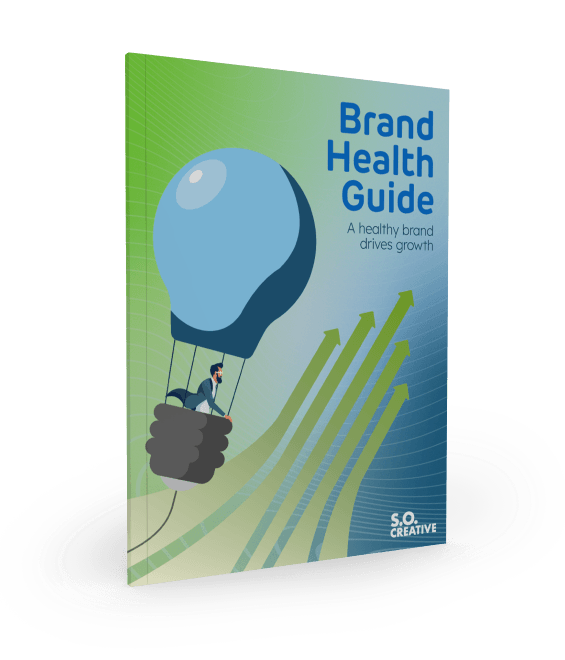If you’re a business owner, CEO or CFO of a $10 million to $200+ million business, marketing automation can shorten your sales cycle and accelerate revenue growth.
In normal circumstances, the B2B client acquisition process has been challenging. B2B companies have longer buying cycles than ever. The buyers are involving more decision-makers and doing a majority of their research before ever connecting with a sales team. In the age of COVID-19, acquiring new clients has become even more challenging. Social distancing has made digital marketing more prevalent than ever; buyers are being bombarded with unsolicited emails and sales pitches. Which means it’s increasingly difficult to cut through the noise and create a meaningful connection with prospects.
Do these roadblocks to sales sound familiar?
- Not enough lead generation to feed your sales team
- No easy way to quickly qualify leads to make sure they are viable candidates, need your product or solution, and can afford it
- No way to efficiently nurture leads with personalized content to aid in the decision-making process
- Sales team struggles to consistently follow up with prospects
- Struggle to identify where and how good prospects fell through the cracks in the buying process
- You aren’t sure which tactics are driving revenue
Marketing automation helps you cut through these roadblocks to generate leads, drive sales and measure ROI so you can continuously optimize your marketing budget and sales process to fuel growth.
How to Break Through the Roadblocks to Sales
Ninety-three percent of businesses using marketing automation say it plays a key role in achieving their most important objectives: increasing sales revenue, lead nurturing and lead generation.
Marketing automation won’t solve all your problems, but it can help get around these roadblocks and help you generate more leads and drive them through a personalized customer journey. This keeps prospects engaged as they move from awareness to interest to desire to action. That’s known as the AIDA model, which details how buyers move from first learning about your product or solution to becoming a buyer.

Marketing automation significantly increases the effectiveness and efficiency of marketing efforts. The right automation platform in the hands of the right marketing team improves conversions and revenue. That’s why three-quarters of all companies are using some form of marketing automation.
The Benefits of Marketing Automation in B2B Lead Generation
- Generate more leads. Marketing automation keeps your sales funnel full by using dynamic forms to capture leads as they engage with your content.
- Identify anonymous web traffic with Visitor ID. Once you’ve captured a user’s contact information through a form, you can use behavioral-based tracking to monitor his or her engagement with your website and marketing content.
- Nurture leads with email campaigns based on their needs and interests. Reaching out individually to nurture leads isn’t possible for most companies. Marketing automation can segment leads and can tell you where prospects are in the buying cycle. This lets you automate the nurturing process without sacrificing a personalized buyer’s journey.
- Increase sales efficiency by qualifying leads before your sales team makes contact. Marketing automation uses algorithmic lead-scoring to identify sales-ready leads and notifies the sales team when leads are ready to buy.
- Improve upselling and cross-selling. Create additional sales opportunities within your existing client base to generate revenue and enhance customer relationships.
- Generate readable, actionable marketing reports to evaluate ROI. Comprehensive campaign analytics pinpoint which tactics are driving revenue and provide actionable insights for optimizing your marketing budget.
What to Look for in a B2B Marketing Automation Solution
So, what should you look for in choosing a marketing automation platform? A survey by Ascend2 and SharpSpring pinpointed the most important features that marketers need:
- Ease of use
- Email and campaign management
- Analytics and reporting
- All-in-one solution
- Pricing and/or pricing model
- Lead capture and management
- List segmentation and scoring
- Integration with existing software (e.g., Salesforce)
How Much Does B2B Marketing Automation Cost?
If you were to buy into a marketing automation solution with a company such as HubSpot, Pardot or Marketo, you’d get access to a marketing automation platform. You might pay $24,000 to $38,000 (or more) for the first year and onboarding. Then, you would still have to create all of the content, manage the system and handle the software. Using SharpSpring, you can reduce your costs dramatically. With S.O. Creative, we’ll license the software and provide the full range of agency services to keep the marketing machine rolling and the funnel full — for about the same cost.

Compare Prices for B2B Marketing Automation
We’ve created a tool to help you compare the licensing costs, onboarding costs, contract terms and overall value for the most popular B2B marketing automation platforms.
Get Price Comparison Calculator
Don’t make the mistakes a lot of companies make. They spend a lot on the automation but then fall short on the execution. Marketers report the three most challenging obstacles to success with marketing automation are:
- Lack of an effective strategy to engage and nurture leads
- Budget limitations
- Lack of skilled staff to execute the strategy, develop creative campaigns and operate the automation platform
At S.O. Creative, we work with you not only to license the marketing automation platform but also to develop the strategies and content you need to reach your growth goals.

